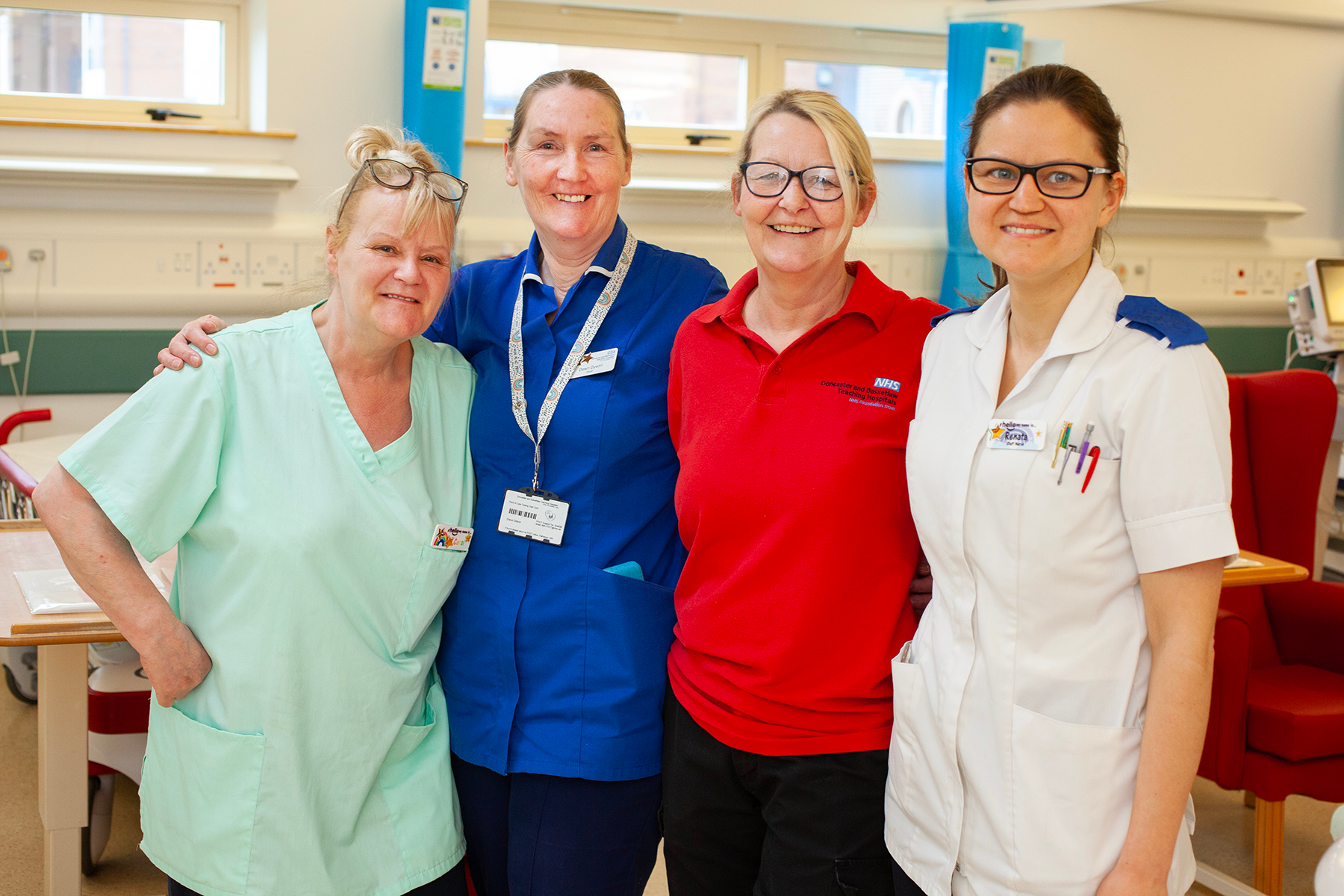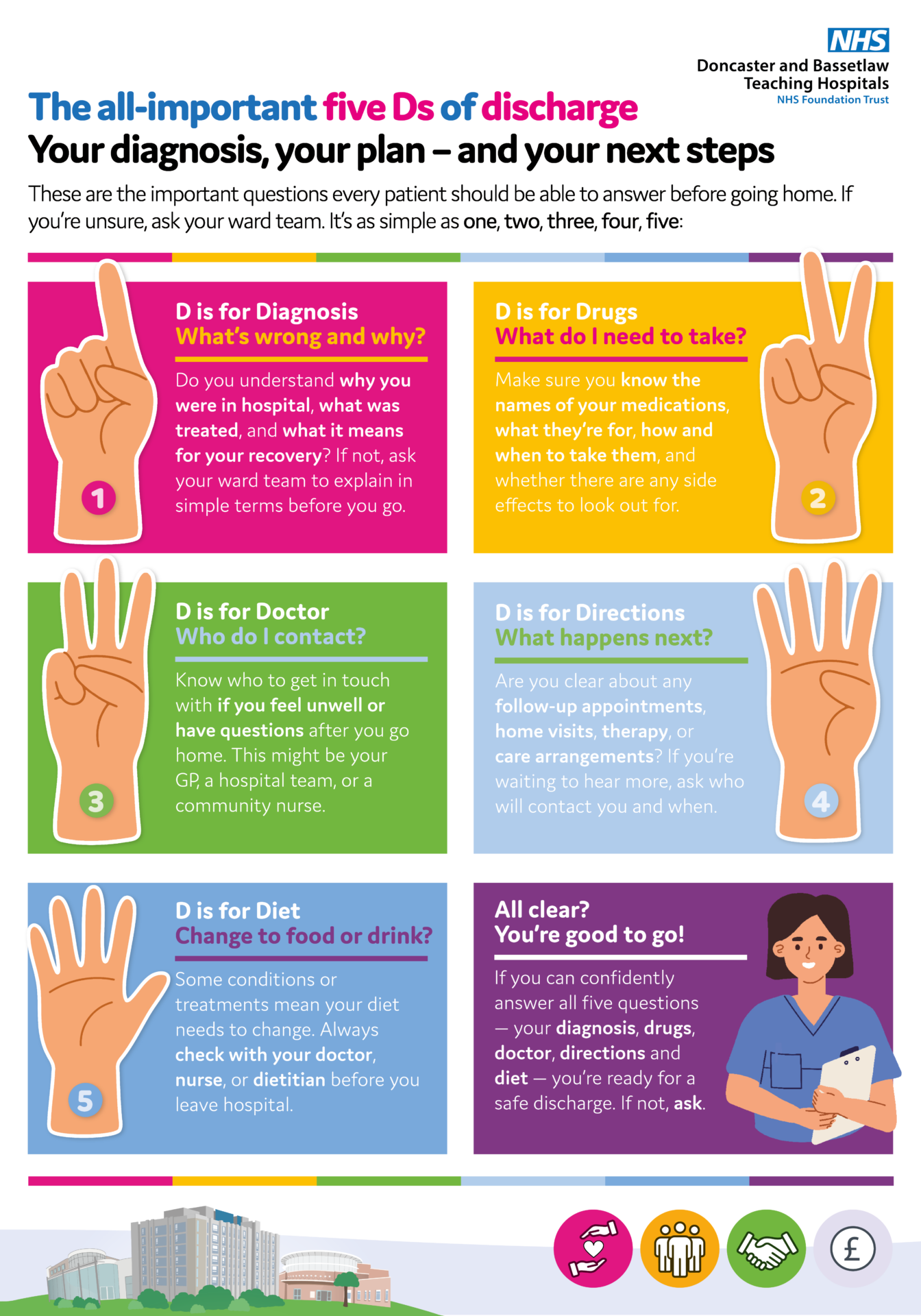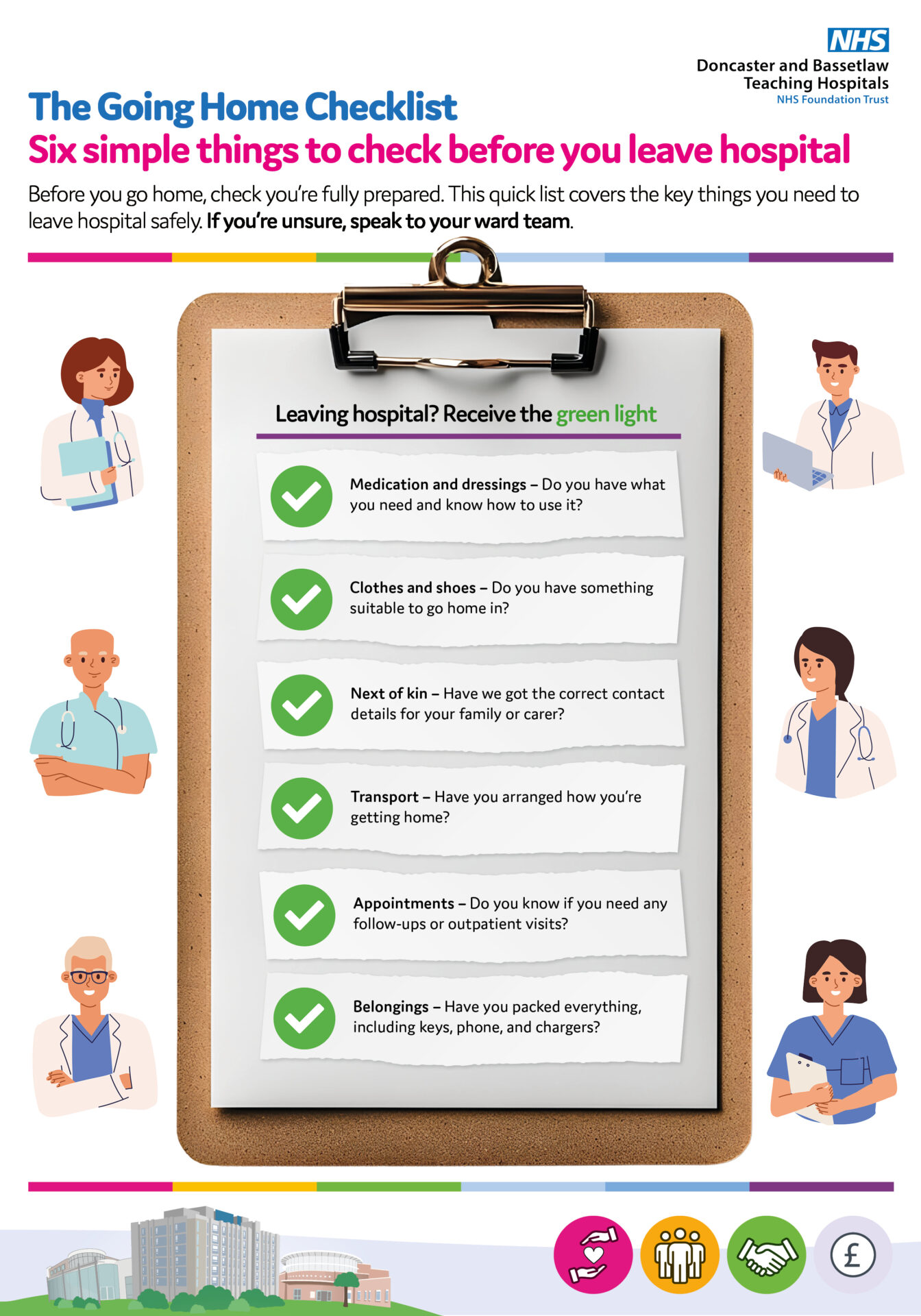This page explains what to expect when you’re preparing to leave and how you, your family or carers can help.
Planning for discharge begins early in your hospital stay. It ensures everything is in place for a smooth return home or transfer to another care setting.
Getting ready to leave hospital
Before you go home, our team will work with you to make sure:
- You understand your condition and treatment
- Any care or support you need at home is arranged
- You have your medications and discharge paperwork
- You know about any follow-up appointments
To help us get everything ready, here are a few things you can do:
- Speak to your nurse or doctor about any medication or dressings you’ll need at home
- Ask a friend, family member or carer to bring in clothes and shoes
- Make sure we have up-to-date contact details for your next of kin
- Arrange your own transport home where possible — hospital transport is only provided in certain circumstances
- Ask about any follow-up appointments and make sure you know where to go and whether you need to book them
- Ensure you take all personal belongings with you, including keys or valuables
- Ask for a copy of your discharge letter and check that you understand it
If you’re unsure about any part of your discharge, please speak to your ward team.

The Five Ds of Discharge
To support a safe and confident discharge, we use the Five Ds — five essential questions every patient should be able to answer before they leave hospital:
- Do you know your diagnosis – why you were in hospital and what was treated?
- Do you know your drugs – what medication you need, how to take it, and why?
- Do you know your doctor – who to contact if you have concerns after discharge?
- Do you know your directions – what happens next, including follow-ups or care at home?
- Do you know your diet – whether you need to change what you eat or drink?
If you’re not sure about any of these, please let your nurse or doctor know before you go home.

Transport and getting home
If you can travel safely on your own or with support from family or friends, please arrange your own transport. This helps us make hospital-funded transport available for those who need it most.
Hospital transport is only provided in specific cases — for example, if you have a medical condition that makes other forms of travel unsafe or are receiving ongoing cancer or renal treatment. If you’re unsure whether you qualify, speak to your ward team.
What happens after you go home
Depending on your needs, you may:
- Be visited at home by a nurse, therapist or support worker.
- Receive temporary care through a service like STEPS (Short Term Enablement Programme).
- Have follow-up appointments, community support or therapy arranged.
We’ll make sure you know what to expect and who to contact if you need help. If anything is unclear, just ask before you leave.
Leaving hospital checklist
Before leaving, please make sure the following are in place:
- I’ve spoken to staff about any medication or dressings I’ll need at home
- I’ve arranged clothes and shoes, or someone is bringing them in for me
- My family or carer knows I’m being discharged, and their contact details are up to date
- I’ve arranged my own transport, or staff have told me if I qualify for hospital-funded transport
- I know if I have any follow-up appointments and where to go
- I’ve packed all my belongings, including keys and valuables
- I’ve received and understood my discharge letter
- I can answer the Five Ds: my diagnosis, drugs, doctor, directions, and diet
If you’re unsure about anything on this list, speak to your nurse or ward team before you leave.

Questions or concerns?
If you have questions about your discharge or what happens next, please speak to your nurse, doctor or ward team.
If you need help after leaving hospital, contact your GP or call NHS 111. In an emergency, always call 999.
Content out of date? Information wrong or not clear enough? Report this page.
